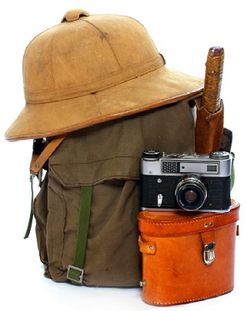
The hotel in Butare (the college town of Rwanda and second largest city) was sparkling white and it seemed the staff was bent on keeping it that way – literally. They seemed to constantly be on their knees. Every day they washed the floors, the walls and windows. As I walked down the hallway, porters and cleaners busily went about their business. One needed sunglasses to walk by so as not to be blinded.
Breakfast was always the same. Upon reaching the dining room, I made eye contact with the host, found a seat and within seconds was brought a pot of tea, milk as well as a bowl of white and brown sugar on a tray. Now, interestingly, in this hotel you could never just get a cup with no milk and no sugar. This was how they served it and there was no deviation. If there were two of you, then you would each receive the same tray: a pot of tea, milk as well as a bowl of white and brown sugar. There was no sharing: one pot, two cups. I tried several times to modify the practice: identifying that the two different people could share the milk, the sugar and even the pot; noting that they could save their resources. All this was to no avail, however; the exact same trays kept on coming.
The breakfast itself was pretty simple. Pretty bland as well: white bread, jam, sweet bananas and some kind of peach-like fruit were available on a table in the center. One could also order some pancake-like substance or some eggs – as long as they were boiled, you were ok.
The other guests seemed to arrive in shifts. If you were an early bird you caught the older crowd: businessmen, military personnel and seasoned travelers getting a jump on the day. The Rwandan work day is pretty short. Also, if one wanted to get anywhere in Rwanda (avoiding the perilous high-speed journeys by moonlight), then they had to get started as soon as possible. Later birds caught the younger crowd: tourists, idealistic anglo do-gooders from the far corners of the Western world. After a relatively late night with some bizarre drink from Uganda, this morning I was sitting with the latter. Alas, I have identified a third group: those who are recovering.
This day, I immediately noticed a new group of young people – they sat at a table in the middle of the room. I sat at my usual corner table, started to pour my tea before getting some bananas. Several glared in my direction – trying to ascertain my background but they were thrown off by my Kinyarwandan greeting to the host.
At that moment, Prof. Robert Bates (from Harvard) entered the room. Now, in many respects Bob defines the stereotypical Africanist scholar to a tee: white hat, white suit, white person, upright, astonishingly aware of history – specific parts of it, people – certain classes and policies – most of them. In other respects, he was about as different as it comes: he was kind, engaging, personable and interested in understanding the world around him. Despite sticking out like a single grain of rice on a sea of black beans, it was clear that he was comfortable here. It was also clear he was totally different from everything I had seen in Rwanda up to that time.
Indeed, after leaving Kigali one rarely saw the color white at all – in any of its forms: skin or clothing. At the Milles Collines (the hotel in the Hotel Rwanda and main spot in the capital), it was almost as if a white suit was the official costume (as if communicating that regardless of location, I will still be unsullied/untouched by the dirtiness of the place). Bob seemed very untouched, floating into the room and toward his group of students. We caught a glimpse of each other quickly and immediately he gave me the warmest of greetings. He then turned, introduced me to the students and we all sat down.
The group was nothing short of amazing. Evidently, Bob had been talking to his class about the Rwandan truth and reconciliation effort – Gacaca. The students had decided that they wanted to help, they had contacted Rwandan authorities, generated some cash, got Bob’s assistance (who admitted to doing very little) and they traveled to Rwanda to assist in the process. The group was diverse – I mean, they were all white and seemingly with means but there was some diversity among them (kinda). One had lived in numerous African countries, another had never been to Africa before. Most spoke English, French and a few other languages. All had engaged in some kind of activism/advocacy before. Compared to most of the kids I taught at the University of Maryland - where I has a Professor at the time (many of whom had never been out of the country and who engaged in little to no activism), I could hardly believe my ears. The upper-crust arranged field trips to Africa. The working-class slept in my political film class and haggled about when assignments were due.
Now, clearly this is a simplification: I think all students haggle and I know for a fact that many of my students at Maryland upon hearing about Rwanda wanted to do something, anything. They just did not take it to the level that these students did to find out what could be done and then make it happen. They also did not/could not tap the resources of the school, parents, friends, multinational corporations in their family/circle or the Harvard alums to bank roll it.
I just sat there hating and admiring Bob's students while at the same time hating as well as loving my students. As they rattled on about what they were doing and what they saw, I could only see and hear my kids – wondering how they would respond if they had the same opportunity, what they would see, what they would tell the others at home.
Now, exactly what the Harvard group would do to be helpful was unclear. Hell, at that point, the Rwandans themselves were still trying to figure out what they were doing with Gacaca. But all the students believed in it (some intensely), and their attitude was at once refreshing and alarming; Refreshing because the exuberance they showed made me happy to be alive and an American, which was rare; Alarming because, despite seeing many flaws, no guarantees of honesty or protection of witnesses, no investigation into anyone’s testimony, no coordination between sessions, the lack of evidence necessary to bring someone to court, their optimism seemed unqualified.
I then thought that my students would not have been duped like this. Their conception of the world was somehow more realistic about such matters. Perhaps the water is clearer from the bottom of the pool.
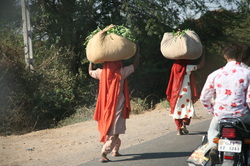
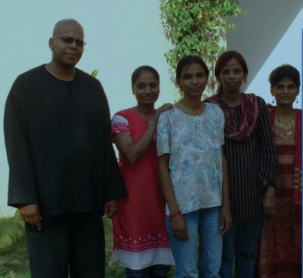
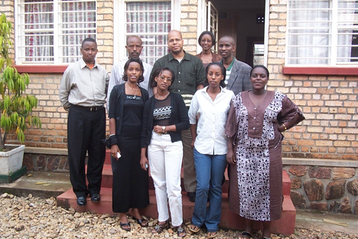
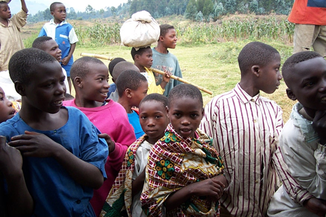
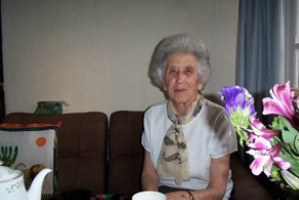
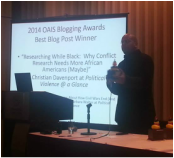
 RSS Feed
RSS Feed
